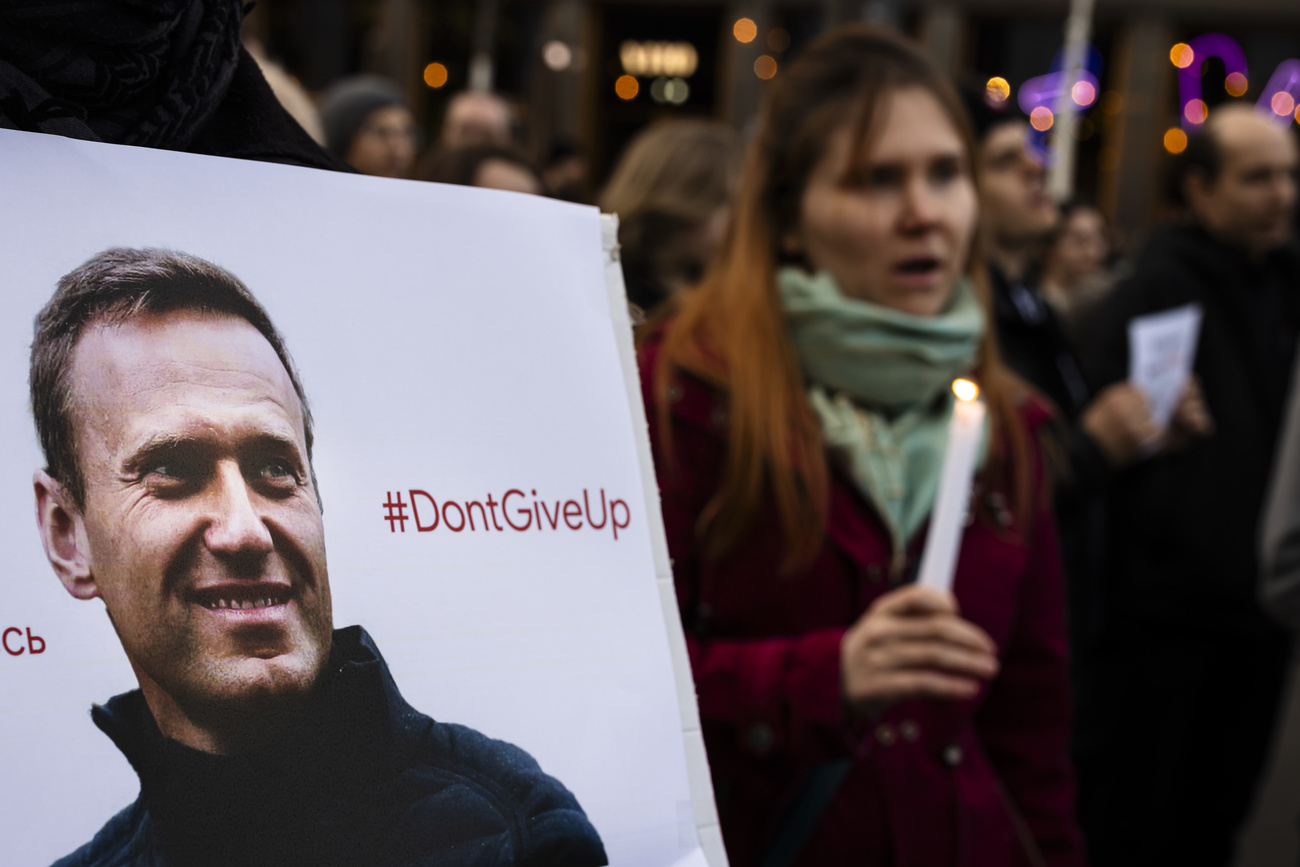
Alexei Navalny: spontaneous memorial events held in Switzerland

Around 300 people gathered in Zurich on Friday for a memorial event following the death of Russian opposition politician Alexei Navalny. They held Russian President Vladimir Putin responsible. Around 50 people gathered in Geneva.
The association “Russia of the Future – Switzerland” had called for “urgent rallies” in Geneva and Zurich at short notice after Navalny’s death became known on Friday.
In Zurich, around 300 people gathered on Europaplatz next to the main railway station. Some brought posters with the words “Never give up” next to a portrait of Navalny. “Putin killed Navalny”, read another poster.
This message was also spread by participants in Geneva on the Place des Nations. They saw the Russian president as a “bloodthirsty murderer”.
+ Oleg Radzinsky: ‘I hope Alexei Navalny’s death will wake up Western politicians’
“I didn’t think Navalny would die in prison,” a woman who had worked with the Russian activist’s teams told the participants. “But the forces of the state were stronger” than those of civil society, she added.
“The next days, weeks and months will be intense for the opposition, the civilian population and Russia,” the association wrote.
+ Swiss foreign ministry expresses concern at the death of Kremlin critic Alexei Navalny
Alexei Navalny died in custody on Friday, according to the Russian judiciary. The 47-year-old reportedly collapsed after a walk in his Siberian penal colony and immediately lost consciousness. Resuscitation attempts by paramedics were unsuccessful.
The Russian secret service is thought to have already carried out a poison attack on Navalny in Siberia in August 2020. In Germany, where Navalny was being treated, a laboratory detected the presence of Novichok, a nerve agent produced in the Soviet Union. Involvement, if not direct instruction for the attack by President Vladimir Putin, is considered very likely in the West.
Translated from German by DeepL/ts
This news story has been written and carefully fact-checked by an external editorial team. At SWI swissinfo.ch we select the most relevant news for an international audience and use automatic translation tools such as DeepL to translate it into English. Providing you with automatically translated news gives us the time to write more in-depth articles.
If you want to know more about how we work, have a look here, and if you have feedback on this news story please write to english@swissinfo.ch.

In compliance with the JTI standards
More: SWI swissinfo.ch certified by the Journalism Trust Initiative




























You can find an overview of ongoing debates with our journalists here . Please join us!
If you want to start a conversation about a topic raised in this article or want to report factual errors, email us at english@swissinfo.ch.